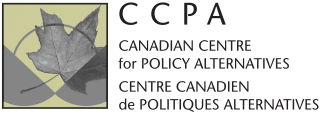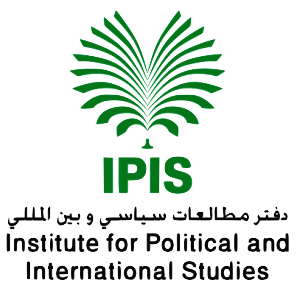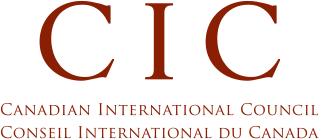Related Research Articles

The United Nations University (UNU) is the think tank and academic arm of the United Nations. Headquartered in Shibuya, Tokyo, Japan, with diplomatic status as a UN institution, its mission is to help resolve global issues related to human development and welfare through collaborative research and education.

A think tank, or policy institute, is a research institute that performs research and advocacy concerning topics such as social policy, political strategy, economics, military, technology, and culture. Most think tanks are non-governmental organizations, but some are semi-autonomous agencies within government, and some are associated with particular political parties, businesses or the military. Think tanks are often funded by individual donations, with many also accepting government grants.

The Brookings Institution, often stylized as Brookings, is an American think tank that conducts research and education in the social sciences, primarily in economics, metropolitan policy, governance, foreign policy, global economy, and economic development.

The Canadian Centre for Policy Alternatives (CCPA) is an independent think tank in Canada. It has been described as "left leaning".

The Royal Institute of International Affairs, commonly known as Chatham House, is a British think tank based in London, England. Its stated mission is "to help governments and societies build a sustainably secure, prosperous and just world". It is the originator of the Chatham House Rule.
NSI may refer to:

Pierre Sané is the founder and president of the Imagine Africa Institute. He was UNESCO’s Assistant Director-General for Social and Human Sciences from May 2001 to June 2010. He was Secretary General of Amnesty International from October 1992 to April 2001.
The Royal United Services Institute is a defence and security think tank headquartered in London, United Kingdom. It was founded in 1831 by the Duke of Wellington, Sir Arthur Wellesley.

The Institute for Political and International Studies (IPIS) is a foreign policy think tank based in Tehran, Iran and affiliated to Iran's Ministry of Foreign Affairs. It was founded in 1983 as one of the first think tanks in Iran after the 1979 Iranian Revolution with the task of leading and encouraging the study and research on issues relevant to the foreign policy of the Islamic Republic of Iran.

The Centre for Policy Dialogue (CPD), established in 1993 by Rehman Sobhan, its Founder chairman, with support from leading civil society institutions in Bangladesh, is mandated by its Deed of Trust to service the growing demand originating from the emerging civil society of Bangladesh for a more participatory and accountable development process. CPD seeks to address this felt-need from the perspectives of marginalised stakeholders, by way of organising multistakeholder consultations, by conducting research on issues of critical national, regional and global interests, through dissemination of knowledge and information on key developmental issues, and by influencing the concerned policy making processes.
The Trade Knowledge Network (TKN) is the collaboration of research institutions in developed and developing countries located in Africa, Asia, Europe and the Americas. The Trade Knowledge Network is aimed at building long-term capacity to address issues of trade and sustainable development in developing country research institutions, non-governmental organizations and governments through increased awareness, knowledge and understanding of the issues. The Trade Knowledge Network is not to be confused with the Trade Knowledge Exchange (TKE), a network of 6 organisations providing expert analysis on the key issues around the post-Brexit trade environment in the UK and globally.

The Canadian International Council is a Canadian think tank on foreign relations. It is an independent, member-based council established to strengthen Canada's role in international affairs. Its goal is to advance debate on international issues across academic disciplines, policy areas, and economic sectors.
Canadian Policy Research Networks (CPRN) was a non-profit, non-partisan socio-economic think tank based in Ottawa, Ontario, Canada, with a focus on citizen engagement and policy research and analysis.
The Think Tanks and Civil Societies Program (TTCSP) was a non-profit program at the University of Pennsylvania in Philadelphia, Pennsylvania, that operated from 1989 to 2021. TTCSP was originally established at the Foreign Policy Research Institute in 1989. The director was James McGann. The program conducted research on policy institutes around the world, and maintained a database of over 8,200 think tanks from across the world.

The KDI School of Public Policy and Management is a government-run graduate school located in Sejong City, South Korea and is affiliated to the Korea Development Institute (KDI) and a member of the National Research Council for Economics, Humanities, and Social Sciences. The school was first established in 1997 in Dongdaemun District, Seoul, before moving to Sejong City in 2015 under the South Korean government's actions to establish the city as the de facto administrative capital of the country. The school specializes in fostering international experts in the field of development economics and public policy.
The North-South Center, later named The Dante B. Fascell North-South Center at the University of Miami in honor of former U.S. Congressman and House Foreign Affairs Committee chairman Dante Fascell, was an independent research and educational institution established in 1984 at the University of Miami in Coral Gables, Florida, United States. The North-South Center was closed by the university in December 2003.

The Balsillie School of International Affairs (BSIA) is a centre for advanced research and teaching on global governance and international public policy, located in Waterloo, Ontario. As one of the largest social sciences initiatives in Canada, the school is a collaborative partnership between the University of Waterloo, Wilfrid Laurier University, and the Centre for International Governance Innovation. The BSIA is an affiliate member of the Association of Professional Schools of International Affairs, a group of schools that educate leaders in international affairs. The BSIA is housed in the north and west wings of the CIGI Campus. Admission to BSIA is highly selective.

The International Institute for Sustainable Development (IISD) is an independent think tank founded in 1990 working to shape and inform international policy on sustainable development governance. The institute has three offices in Canada - Winnipeg, Ottawa, and Toronto, and one office in Geneva, Switzerland. It has over 150 staff and associates working in over 30 countries.
The Partnership for Peace Consortium is a network of over 800 defense academies and security studies institutes across 60 countries. Founded in 1998 during the NATO Summit, the PfPC was chartered to promote defense institution building and foster regional stability through multinational education and research, which the PfPC accomplishes via a network of educators and researchers. It is based at the George C. Marshall European Center for Security Studies in Garmisch, Germany. According to the PfPC Annual Report of 2012, in 2012 eight hundred defense academies and security studies institutes in 59 countries worked with the PfPC in 69 defense education/defense institution building and policy-relevant events. The Consortium publishes an academic quarterly journal CONNECTIONS in English and Russian. The journal is run by an international Editorial Board of experts and is distributed to over 1,000 institutions in 54 countries.
Unirule Institute of Economics was a Beijing-based Chinese think tank established in 1993. Unirule conducted research and education in social sciences, primarily in economics, governance, policy, and culture. Unirule was dedicated to the open exchange of ideas in economics in general, with a particular focus on institutional economics. In the University of Pennsylvania's 2012 Global Go To Think Tanks Report, Unirule ranked 14th in the category of "Best Think Tanks with an Annual Operating Budget under $5M USD". In August 2019 the institute announced that it would be closing down due to governmental pressure.
References
- ↑ Think Tank Watch (10 September 2014). "Canadian Think Tanks in Decline; North-South Institute to Close" . Retrieved 12 September 2014.
- ↑ NSI Board. "The North-South Institute Announces Closure". North-South Institute Website. Retrieved 12 September 2014.
- ↑ Blair, Crawford (10 September 2014). "North-South Institute, Ottawa-based think tank, to close". Ottawa Citizen. Retrieved 12 September 2014.